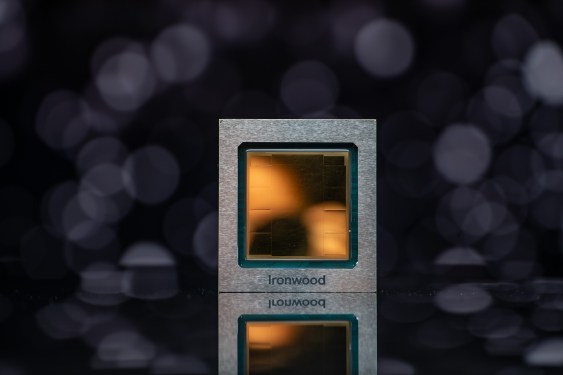AI Revolution: Google Introduces Ironwood, a Game-Changing TPU Accelerator Chip

At its recent Cloud Next conference, Google showcased its latest innovation in AI technology: the Ironwood TPU, the company’s seventh-generation AI accelerator chip. Optimized explicitly for inference workloads, Ironwood is designed to enhance the efficiency and performance of artificial intelligence models. Set to launch later this year for Google Cloud customers, the chip will be available in two configurations: a compact 256-chip cluster and a larger 9,216-chip configuration.
“Ironwood is our most advanced, robust, and resource-efficient TPU yet,” stated Amin Vahdat, Vice President of Google Cloud, in an official blog update. It’s tailored for the demands of large-scale inferential AI models, positioning Google more competitively against industry leaders like Nvidia and tech giants such as Amazon and Microsoft, which are also developing their in-house chip solutions.
Nvidia’s dominance in the market remains significant, yet companies like Amazon, with chips like Trainium and Inferentia, and Microsoft, promoting its Maia 100 AI chip, are rapidly evolving their offerings in the AI accelerator space. Ironwood is already showing impressive benchmarks, reportedly delivering peak computing power of 4,614 TFLOPs, along with each chip housing 192GB of dedicated RAM and bandwidth nearing 7.4 Tbps.
Notably, Ironwood introduces the enhanced SparseCore architecture, optimized for processing large datasets typical in advanced ranking systems and recommendation algorithms—like those suggesting clothing options based on user preferences. Google emphasizes the TPU’s architecture aims to minimize data movement and latency, thereby lowering power consumption.
In upcoming developments, Google plans to integrate Ironwood with its AI Hypercomputer, a modular computing cluster aimed at maximizing performance in the Google Cloud environment. Vahdat described Ironwood as a pivotal breakthrough in the realm of inference, citing its advancements in computational capabilities and reliability.
The AI landscape is evolving, and with innovations like Ironwood, Google aims to solidify its position at the forefront of technological advancements. As Google continues refining its AI capabilities, the competition is set to intensify, heralding a new era of AI hardware that pushes the boundaries of what is possible in inferential AI applications.
For further insights on Amazon’s AI innovations, check out the latest on Amazon’s AI advancements and learn more about Microsoft’s AI chip capabilities to see how the industry is responding to this technological shift campaign.
